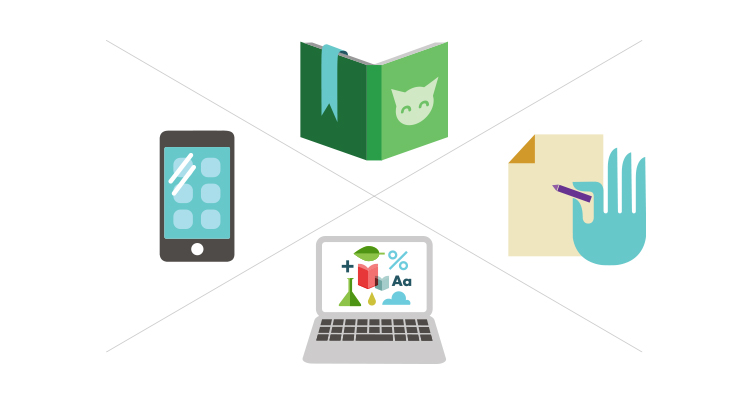Gaming: it seems to be the hottest trend in education right now. Just this week a study was released that found half of K-8 teachers surveyed incorporated digital games into the classroom at least twice a week, some, daily. And why not? Games are engaging, they encourage mastery, provide immediate feedback, and kids love them. But can playing games, especially so-called “brain games”, actually make you smarter? The answer, according to some researchers, is yes.
When discussing intelligence, psychologists differentiate between two types. Crystallized intelligence is acquired, and it grows throughout life; it’s the skills and knowledge that make you a Trivial Pursuit champion, a good driver, or a talented musician. The other kind of intelligence is fluid intelligence. It’s your ability to reason and solve unfamiliar problems, and the kind of intelligence measured by IQ tests (whether or not such tests are an accurate representation of intelligence for everyone is a topic for another discussion).
Psychologists have generally agreed that fluid intelligence is relatively static. It’s thought to set in early, peak in the early to mid-twenties, and decline from there. However, a 2008 study conducted by Susanne Jaeggi and Martin Buschkuehl found that playing simple brain games can actually improve fluid intelligence. Jaeggi’s subjects were young adults, but her study has since been replicated with preschool, school-age children, adults, and the elderly, with similar results. These studies focus specifically on a type of game called N-Back games, which test a player’s working, or short-term, memory.
In N-Back games, players are presented with a series of images or sounds and, as the game progresses, must remember the image/sound that came before (1-back) and before that (2-back) and so on. In Jaeggi’s study, a dual N-Back was used, in which players try to remember both a letter sound and the sounds that preceded it, while also remembering the location of symbols on a grid.
In Jaeggi’s experiment and similar ones, people who participated in regular training with N-Back games showed a marked improvement in their ability to complete reasoning tasks. In one study, fluid intelligence improved after about 20 half-hour training sessions, with improvements lasting as long as three months. Further studies are reportedly underway that will attempt to link these gains with job and school performance.
While it remains to be proven just how much brain games can improve intelligence, and what affect that might have on education or career success, it is exciting that we’re still learning so much about the way our minds work. If you’re interested in trying these games for yourself, you can find free versions at BrainWorkshop, or Lumosity (Lumosity requires registration but does offer many memory and brain games; some free, some requiring a paid subscription.)
Related Link




































